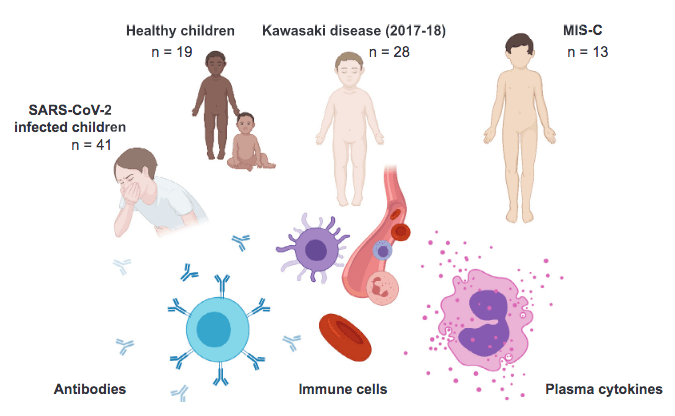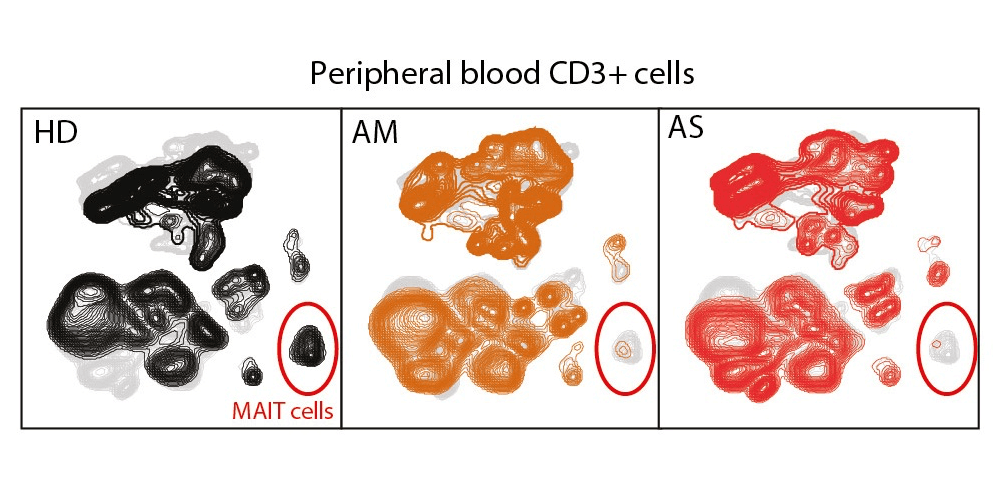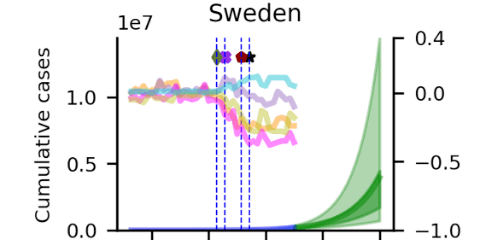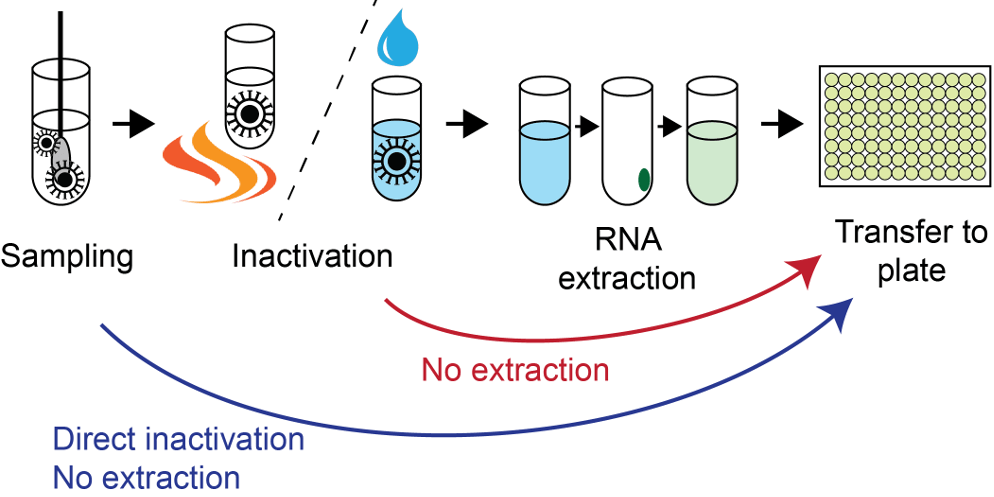Pathogenesis of hyperinflammatory syndrome associated with COVID-19 in children
Published: 2020-12-07

The first reports about COVID-19 suggested that children infected with SARS-CoV-2 often presented with milder symptoms than adults. However, subsequently several studies from Europe and the USA have reported that in rare cases children can develop a severe hyperinflammatory syndrome (MIS-C). These children present with high fever, and other symptoms previously associated with Kawasaki disease. Kawasaki disease involves production of self-reactive antibodies during the acute immune response to a viral infection. Previous studies of Kawasaki disease showed an imbalance of interleukin (IL)-17-producing T cells and regulatory T cells during the acute phase of the disease.
Only few studies about MIS-C in children associated with COVID-19 have been published so far. In one of these studies, Camila Rosat Consiglio and colleagues (PI: Petter Brodin) performed a systems-level analysis of immune cells, cytokines, and antibodies, and compared blood from children presenting with MIS-C with children with mild SARS-CoV-2 infection, children with Kawasaki disease, and healthy children (the healthy children were enrolled prior to the COVID-19 pandemic). Consiglio and colleagues found that the inflammatory response in MIS-C differs from the cytokine storm of severe acute COVID-19. The results also showed that the inflammatory response in MIS-C shares several features with Kawasaki disease but differs from Kawasaki in some respects, for example T cell subsets, interleukin (IL)-17A, and biomarkers associated with arterial damage. The authors conclude that T cell subsets discriminate Kawasaki disease patients from MIS-C and that while IL-17A drives Kawasaki, it is not driving MIS-C hyperinflammation. In summary, the autoantibody profiling suggested multiple autoantibodies that could be involved in the pathogenesis of MIS-C and be important for the future treatment options for children with the hyperinflammatory syndrome.
The researchers have deposited datasets from their study and supplementary tables including multiple omics data from plasma protein expression (Olink- NPX-values, FACS, and autoantibodies) in the SciLifeLab Data Repository under DOI: 10.17044/scilifelab.13181273. The scripts to reproduce the analyses presented in each figure of the paper were made available on Github.
The SciLifeLab Data Repository where the data from the study was deposited is a general repository for publishing any kind of research-related data, e.g. documents, figures, or presentations. Through an agreement with FigShare, the SciLifeLab Data Centre offers researchers and facilities an opportunity to upload and publish their research data as well as any support needed. Individual users of the SciLifeLab Data Repository automatically receive 50 GB of storage space. When the uploaded data is published, a permanent DOI link is created. In addition, a DOI can be reserved before public release of data. The repository is also suitable for creating metadata-only records for sensitive data stored elsewhere. For more information, see this page about the repository and the submission guidelines.
This project has received funding from the Knut and Alice Wallenberg Foundation (KAW) to SciLifeLab, Bure Equity AB and Jonas and Christina af Jochnick Foundation to Karolinska Institutet and the SciLifeLab/KAW national COVID-19 research program project grant (P.B.) Children’s Hospital “Bambino Gesu”, 5 X mille 2019, ricerca corrente 2020 (N.C.) and ricerca corrente 2019 (P.P).
Article
DOI: 10.1016/j.cell.2020.09.016
Consiglio, C. R., Cotugno, N., Sardh, F., Pou, C., Amodio, D., Rodriguez, L., Tan, Z., Zicari, S., Ruggiero, A., Rubens Pascucci, G., Santilli, V., Campbell, T., Bryceson, Y., Eriksson, D., Wang, J., Marchesi, A., Lakshmikanth, T., Campana, A., Villani, A., Rossi, P., the CACTUS Study Team, Landegren, N., Palma, P., & Brodin, P. The Immunology of Multisystem Inflammatory Syndrome in Children with COVID-19. Cell, 183 (4), P968-981.e7 (2020).
Data
DOI: 10.17044/scilifelab.13181273
Multiple omics data:
- Plasma protein expression (Olink - NPX values)
- FACS
- Autoantibodies



